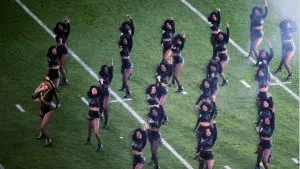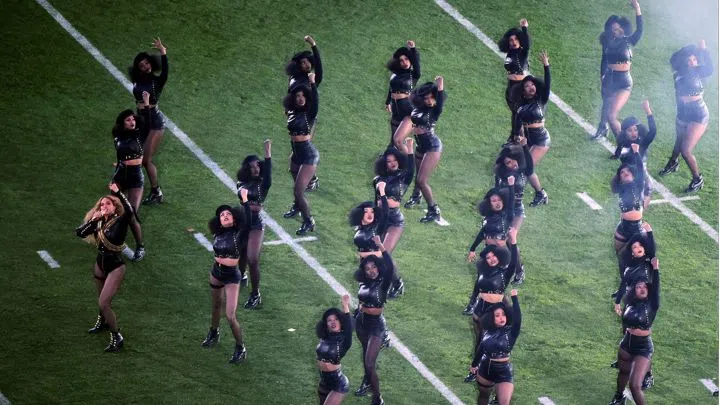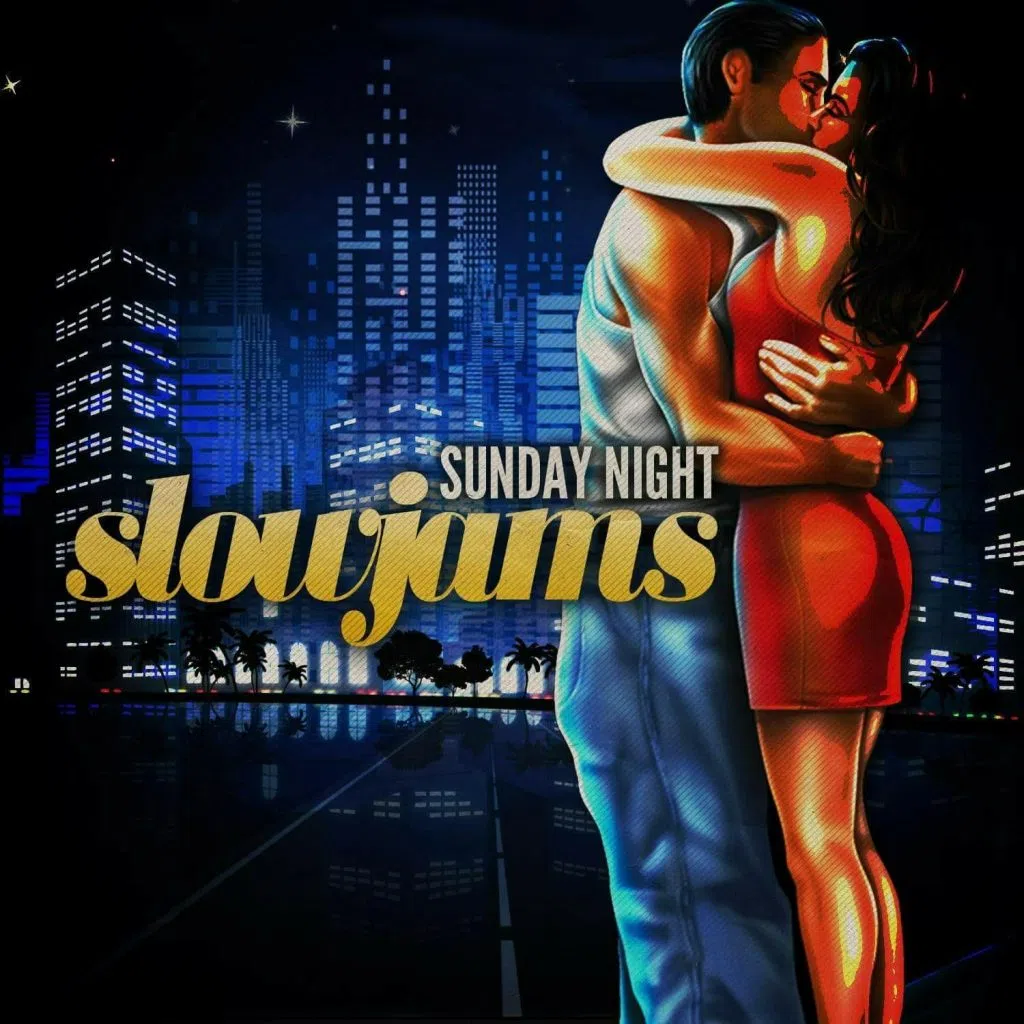 Announced by a small all-women drum line contingent, 30 black women, led by Beyoncé, appeared in formation at the halftime of the 50th Superbowl. Their style marked a different 50th anniversary, with the afros, black berets and leather commonly associated with the Black Panther Party for Self Defense, founded in Oakland in October 1966. For their 90 seconds on the field before joining Bruno Mars and Coldplay on stage, Beyoncé and her complement of dancers used widely recognizable imagery of black empowerment, even raising clenched fists in unison, to reinforce the messages of black pride in “Formation” – the surprise single and video Beyoncé released on Saturday afternoon, which has us still sweeping pieces of a broken Internet into our collective dustpans.
Announced by a small all-women drum line contingent, 30 black women, led by Beyoncé, appeared in formation at the halftime of the 50th Superbowl. Their style marked a different 50th anniversary, with the afros, black berets and leather commonly associated with the Black Panther Party for Self Defense, founded in Oakland in October 1966. For their 90 seconds on the field before joining Bruno Mars and Coldplay on stage, Beyoncé and her complement of dancers used widely recognizable imagery of black empowerment, even raising clenched fists in unison, to reinforce the messages of black pride in “Formation” – the surprise single and video Beyoncé released on Saturday afternoon, which has us still sweeping pieces of a broken Internet into our collective dustpans.
Yet along with this easily discernible symbol of a national black justice movement, one like today’s movement, Beyoncé nodded in particular towards the South and her southern heritage. It was the Black Panther Party in Lowndes County, Alabama, also known as the Lowndes County Freedom Organization, that inspired the founding of the Oakland-based group with which we are now familiar. As Beyoncé reminds us in the lead-up to one of the hooks on “Formation,” her father and mother’s respective Alabama and Louisiana backgrounds begot her – a “Texas Bama” who likes her daughter’s “baby hair” to be in an afro, who prefers her partner’s nose with “Jackson Five nostrils,” and who keeps hot sauce in her bag in case of criminal under-seasoning or an unexpected fish fry. Even on a national stage, Beyoncé brought the black South, and its formation, into the conversation.
Beyoncé has a long history of using her pop platform to make her regional birthright explicit. For 2008’s “Single Ladies”, she drew on choreography inspired by Jackson State University’s Prancing J-Settes. The Houston screw sound was central to 2013’s “Bow Down/I Been On”, on which she tells us that she snuck and listened to UGK, ate boudin in the parking lot and wore dookey braids. Later that same year, “No Angel” was a visual love letter to a gritty black Houston. Through this work, Beyoncé has quietly built her position in global pop by claiming and accomplishing a black southern specificity, albeit one largely contained on the margins of how she presents herself as an artist.
– Rolling Stone








